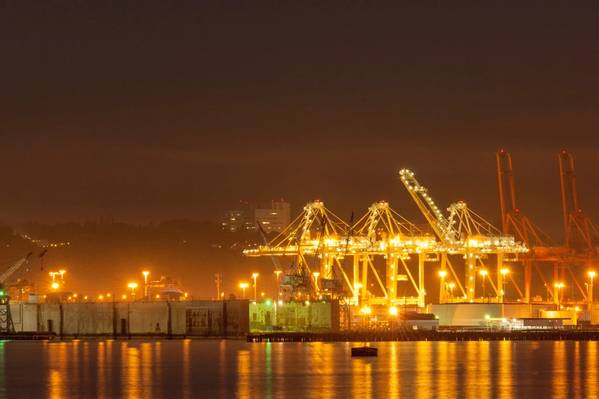
In a joint plea to Congressional leadership and Treasury Secretary Steven Munchin this week a host of maritime transportation entities asked that $3.5 billion in COVID-19 relief funding be made available for the U.S. maritime transportation sector, citing “significant hardships” and “unique and unexpected challenges” posed by the COVID-19 pandemic.
The letters ask Congress and the Administration to take immediate action to provide the whole of the maritime transportation system with the resources necessary to combat the virus and ensure the safety of the industry’s sizable workforce.
“America’s maritime transportation system, including its ports and their direct workforce of more than 650,000 front-line personnel, have kept essential goods moving to medical professionals, first responders and vital manufacturing, distribution and retail businesses during the pandemic,” said Christopher J. Connor, President and CEO of the American Association of Port Authorities (AAPA). “Their dedication and perseverance has enabled commerce to continue flowing during a time of great risk, upheaval, stress and greatly increased costs, allowing millions of Americans to safely and comfortably work from home.”
Connor noted that while recent news reports show a resurgence of trade at some of country’s largest container ports, “the truth is that most ports are still suffering financially, particularly those that handle non-containerized goods, like steel, grain and other bulk commodities. Even most container ports have large business portfolios that include handling critical, but poorer performing commodities that put a financial drag on their ability to pay the added costs of protecting their workers.”
The maritime industry trade groups are urging federal policymakers to provide $3.5 billion in relief to the U.S. maritime transportation sector amid extraordinary costs involved in fighting the virus and the fact that no dedicated funding has been provided in any COVID-19 legislation.
“The relief we’re seeking is about ensuring ports and other maritime transportation businesses are able to keep pace with the accelerating costs of protecting their workers while keeping their workforce employed, and maintaining a state of readiness so they can significantly aid in the nation’s eventual economic recovery,” Connor said.


